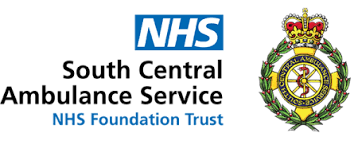SCAS (South Central Ambulance Service) uses analytics-ready economic and geo-demographic data from Doorda to optimise emergency vehicle responses.
With a fleet of over 1300 vehicles of which 200 are ambulances, the South-Central Ambulance Service (SCAS) usually responds to over 1,900 emergency calls daily.
The SCAS team are continually investigating how to optimise the use of their finite resources. When the COVID pandemic struck the UK, even the service’s regular involvement in planning exercises for pandemics and other exceptional circumstances didn’t prepare them for the tsunami of calls for help, so the team decided to prioritise any analysis which might optimise the standby locations of their emergency vehicles.
“We had to acquire masses of data about the local population as soon as we could”
Vivienne Parsons, Specialist Business Analyst, SCAS
Vivienne Parsons, Specialist Business Analyst at SCAS remembers that she and her colleagues were determined to assist patients and front-line medical crews as soon as possible, “I was convinced that predictive analytics could help optimise vehicle placement and use, but in order to complement our existing service data we had to acquire masses of new data about the local population as soon as we could.”
A trustee of the NHS Foundation Trust who had relevant business connections quickly suggested that SCAS contact Doorda, a UK company providing ready-to-use data which often enables organisations to accelerate and enhance their predictive analysis. Doorda continually gathers, links and harmonises GDPR-free data about UK properties, businesses and geo-demographics, from over 1,500 Official sources. The Doorda data engineers offered SCAS analysts a selection of non-personal, economic and geo-demographic data which they thought might be relevant.
“Doorda had a wealth of data that helped predict emergency needs through better understanding the populations in each area”
Vivienne Parsons, Specialist Business Analyst, SCAS
Vivienne enhanced the SCAS models with Doorda data which she felt could have some predictive value; data such as wealth, household size, household age profile, social deprivation, co-morbidity and ethnic origin. The team also looked at the levels of trust people had in their local GPs, realising that where patient trust is at its lowest, calls on the emergency services are often at their highest. “Doorda had a wealth of data that helped us predict emergency needs through better understanding the populations in each area.”
By combining Doorda data with their own data about the evolution and spread of the Covid virus the SCAS analysts were able to evaluate predictions and refine their models almost immediately. SCAS successfully modelled the patterns and areas of highest demand, allowing them to proactively locate their vehicles in the optimal places, leading to faster response times and contributing to overall improved outcomes for the people in those areas. Their data-driven approach has proven successful and the optimisations to the service have persisted.
“we believe it is greatly assisting our optimisation of emergency responses”
Simon Mortimore, Assistant Director Business Information, SCAS
Simon Mortimore, Assistant Director for Business Information, said, “We now combine Doorda data into our multivariant analysis models for planning and we believe it is greatly assisting our optimisation of emergency responses. This type of contextual data is vital in ensuring enhanced analytics to provide context. I am really excited to be working with partners such as Doorda as we move into the use of machine learning”.







